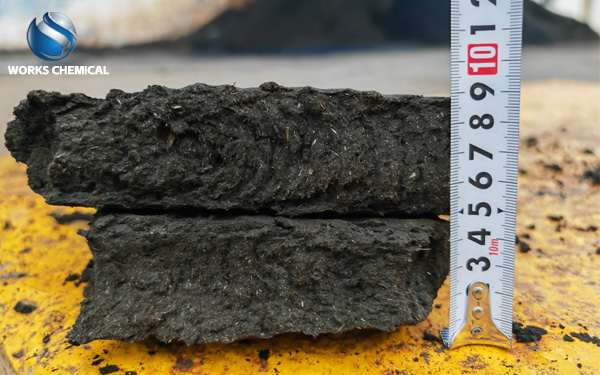
There are significant differences between sludge enhancers and ordinary sludge conditioning agents in many aspects, and the following is a detailed analysis of these differences:

Composition and principle:
Sludge enhancer: mainly contains water purification agent, organic polymer, sludge stripping agent, sludge surface treatment agent, wall breaking agent degreaser, sludge surface structure modifier and other components. It changes the surface properties of sludge through synergistic action, reduces the specific surface area of sludge, destroys the cell wall and cell membrane to release intracellular water, thereby removing free water, bound water, capillary water and intracellular water in sludge.
Common sludge conditioning agents: Ingredients may include traditional water treatment agents, such as polyacrylamide, polyaluminum chloride, ferric chloride, lime, etc. These agents mainly rely on their adsorption, precipitation or ion exchange properties to treat the sludge.
Dehydration effect:
Sludge enhancer: After the use of sludge enhancer conditioning sludge, through the plate and frame filter press filtration, can achieve the effect of sludge depth dehydration, the moisture content of the sludge can be effectively reduced to 35%-55%.
Ordinary sludge conditioning agents: Although these traditional sludge conditioning agents also have a certain sludge dewatering effect, their dewatering effect is usually not as significant as the sludge synergist, and the use cost is higher.
Impact on the device:
Sludge enhancer: The use of sludge enhancer will not cause problems such as corrosion or clogging of the sludge dewatering equipment, but also effectively improve the efficiency of the dewatering equipment.
Ordinary sludge conditioning agents: Traditional water treatment agents may seriously corrode sludge dewatering equipment, cause blockage to the filter cloth, and increase the maintenance cost of equipment.
Cost of use and Environmental benefits:
Sludge enhancers: Due to their efficient dewatering effect and low equipment maintenance costs, the use of sludge enhancers can reduce the overall cost of sludge treatment. At the same time, it can also reduce the output of sludge, reduce the difficulty of sludge treatment and disposal, and has good environmental benefits.
Common sludge conditioning agents: The cost of using traditional sludge conditioning agents is usually higher and may have a negative impact on the environment.
Scope of application:
Sludge synergist: mainly used in municipal sewage treatment plants and various industrial and domestic sewage treatment facilities of sludge pre-concentration, sludge dehydration. Strong adaptability to water quality, high acid and alkali tolerance, suitable for plate and frame dehydration equipment before dewatering sludge conditioning.
Common sludge conditioning agents: The scope of application may be relatively narrow, depending on their composition and characteristics.
In summary, sludge enhancers are superior to ordinary sludge conditioning agents in terms of composition, dewatering effect, impact on equipment, cost and environmental benefits, and scope of application. Therefore, in the process of sludge treatment, the use of sludge synergists can more effectively solve the problem of sludge dewatering difficulties, reduce the overall cost of sludge treatment, and have good environmental benefits.